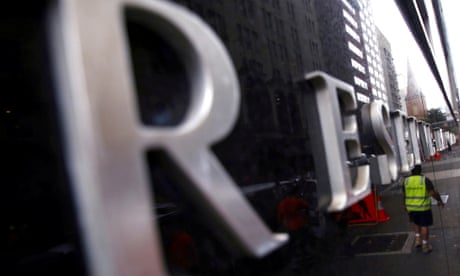- by foxnews
- 04 Jun 2025
‘Once-in-a-generation opportunity’: Why the RBA is under review - and what happens next?
‘Once-in-a-generation opportunity’: Why the RBA is under review - and what happens next?
- by theguardian
- 02 Apr 2023
- in news

The treasurer, Jim Chalmers, has received the findings of the review of the Reserve Bank of Australia and says he will release the report's recommendations - and the Albanese's government's plans - in April.
Here are some of the key elements to watch for in the 294-page report and its 51 recommendations.
The central bank, one of the most important government institutions, hasn't been subject to a substantial overhaul since 1998.
Jonathan Kearns, who headed several key RBA departments before leaving in February to become chief economist at Challenger, says the review was "a once-in-a-generation opportunity" to improve the bank.
While the central bank is in the midst of a record 10 consecutive monthly interest rate rises since last May - with another one a possibility on Tuesday - the prompt for the overhaul came earlier.
The treasurer during the Morrison government, Josh Frydenberg, flagged plans for a review in September 2021 as the economy began to emerge from Covid. There was "a need to address the [monetary policy settings] and to look at what lessons can be learned, especially after this once-in-a-lifetime pandemic", he said at the time.
For the past three decades, the RBA has been charged with using interest rates to keep annual inflation within a 2% to 3% band over time as a proxy for sound economic management.
For much of the past decade, inflation tracked below 2%, fuelling criticism the RBA had kept its cash rate too high. Lately the issue has been the opposite. With prices rising at an annual clip of more than 8% at the end of 2022, the RBA now doesn't expect inflation to drop back within its target range until 2025.
The review's scope was to examine the RBA's performance against four themes: its objectives, policy implementation, governance processes and public communications.
Last November, the panellists said there was "deep support" for the central bank remaining independent from executive government. The trio had considered more than 100 submissions, interviewed more than 230 people and surveyed almost 1,100 current and former RBA staff.
The need for regular bouts of scrutiny for the RBA was strongly hinted at as a likely outcome of the current review, as already happens for some overseas counterparts.
A highly favoured outcome of the review will be the creation of a separate body to oversee the setting of interest rates. (The bank also has its hands full dealing with issuing money, among a slew of jobs.)
Canada, for instance, has a separate governing council of six members drawn from senior ranks of the Bank of Canada. The Bank of England's financial policy committee has 13 members, six from within the bank itself, with the other five selected from outside "for their experience and expertise in financial services".
By contrast, the RBA has a single board with just nine members. The governor, Philip Lowe, the deputy governor, Michele Bullock, and the Treasury secretary, Steven Kennedy, are joined by six others typically from the business sector with one academic. Unions and community groups would like to see representation broadened.
Kearns says the Bank of England might be a model for the changes since the committee members have access to bank staff to assist with analysis and modelling.
RBA board members now typically only receive briefing papers several days ahead of a meeting. They then turn up for a half a day's discussions.
The RBA board now meets the first Tuesday of every month, save for the annual summer break over January. Within the bank, some view the frequency as an advantage, giving it the ability to respond more flexibly than overseas counterparts that may only gather eight times a year.
Kearns, though, says the frequency means a large share of the staff end up being caught in a short cycle of preparing fresh briefings for the board, leaving them with scant time for research. "There's always the potential for an out-of-cycle meeting" should a crisis erupt, he adds.
As an institution, the bank has also become relatively exclusive, another former staffer says. "You had to be grown from grad," the staffer says, referring to the hiring of junior staff directly out of university. "It's really rare for anyone outside to be brought in."
Once they leave, few ever find their way back in, even though they may have useful new skills, the staffer says.
Within the bank, assistant governors Susan Woods and Brad Jones are touted as external hires of note. Being a long-term insider, though, has been an advantage, says Kearns, who served 28 years at the RBA. "That's how they progressed."
In its answers to the review, the RBA noted that two-thirds of its current policy staff had started at the bank as graduates. "Around one in six appointments to management roles (manager and above) in the policy groups was filled by an external hire over the past five years," it said. "That compares with around one in 13 appointments in the prior five years (none of which were above senior manager)."
A need for diversity of experience will almost certainly come up, with Lowe's term ending in mid-September and speculation he will be replaced.
Also expect more regular public briefings, perhaps after every rates decision as happens with the US Federal Reserve, former bankers say.
With the increasing complexity of financial markets and the rise of digital currency, the RBA will need grow ever more flexible, Kearns predicts.
Timo Henckel, an ANU professor who participated in the review, said some of the changes "don't seem too difficult to implement". While altering the board's composition may make some difference, others may be mostly cosmetic.
"What's not been discussed are the big-picture items, those that really matter," Henckel said. "Namely, to what extent the RBA should focus on financial stability versus price stability, its relationship to the Australian Prudential Regulation Authority in the pursuit of prudential regulation, et cetera."
Any significant changes to the RBA's governance will likely need bipartisan backing to get through parliament. Chalmers says he's encouraged by the willingness so far of his shadow Liberal, Angus Taylor, to nut out necessary changes.
"We want the RBA to be world's best practice and we are prepared to work in a bipartisan way across the parliament on any agreed changes," Chalmers said.
We'll see whether that cooperation remains once Chalmers makes his own plans clear.
- by foxnews
- descember 09, 2016
Should you lock your luggage when traveling? Why it's a weighty matter
With tightened security, experts are warning of luggage risks like theft and mishandling for travelers. TSA sees 90,000 to 100,000 items left at checkpoints monthly.
read more


